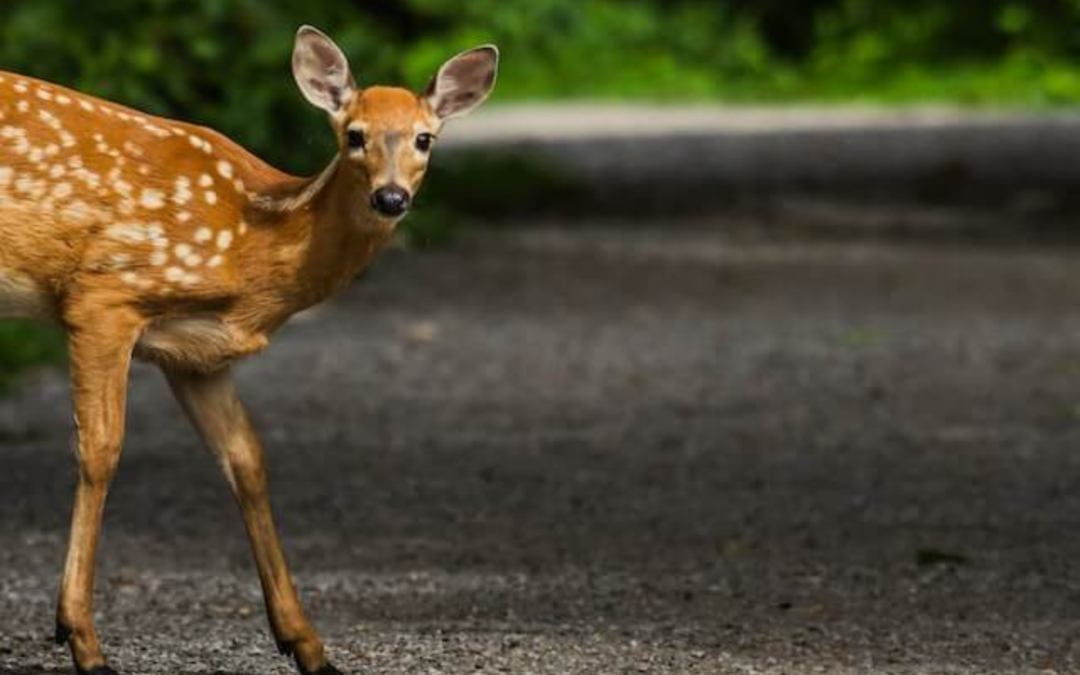Hitting an animal with your car can be an upsetting experience, so here’s a handy guide on what to do next.
Unfortunately, many drivers experience the shock of having an animal run out into the road and their car hitting it. It can be difficult, but it is important to stay calm in order to keep yourself and any passengers safe.
To help you in this stressful situation, here is a step-by-step guide on what you should do if the worst happens and you hit an animal with your vehicle.
Turn on your hazards and stop your car
If your car hits an animal, switch on your hazard lights and then stop the car in a safe space. It’s best not to slam on your brakes, do an emergency stop or veer off to the side to avoid the animal. Doing so could cause you to collide with another car, causing more injuries and damage. You could also be held liable.
Once you’ve found a safe space to stop, check yourself and anyone else in the car for injuries. Larger animals, such as deer and cows, can feel like brick walls if you hit them, so it’s important to check that no one is hurt. If necessary, call an ambulance.
Call for help
What you do next will depend on what animal has been hit.
The Road Traffic Act (1998) means that you have a legal responsibility to call the police if you hit any of the following animals:
- Dogs
- Horses
- Cattle (such as cows)
- Pigs
- Goats
- Sheep
- Donkeys and mules
You won’t need to contact the police if you hit a cat or a wild animal, such as a badger. This is because cats are not classed as a working animal and no one ‘owns’ a wild creature. However, the government does suggest that you still contact the police if you hit a deer.
If it is safe to do so, you can exit your car to see if the animal is dead or injured. Watch the animal from a safe distance first as a wounded creature could react badly to your approach.
If an animal is hurt but still alive, you could call the RSPCA or Scottish or Irish equivalents to see if they can send someone out to help it. Smaller creatures, such as hedgehogs or birds, could be taken directly to a centre or a vets for treatment if you are happy to do so.
If an animal is dead, it is a good idea to call your local council to report it. They can then send someone out to remove the animal. If you are able to move a dead animal out of the road so other motorists don’t hit it, then you can do so. However, always be mindful of other cars and do not attempt this unless it is safe.
Contact the owner of a pet
If you have hit a dog or cat, its owners will appreciate being told.
If a dog has been hit, look around for the owner as they are likely to be nearby. If they are, you should share your contact details with them and let them know that you have informed the police.
If you cannot see an owner, you can check for any collar tags on the dog or cat and then use the contact information to reach the owners. If there is no identification, there is a possibility that the animal is microchipped. A vet or the RSPCA can discover this if you want to investigate further.
Gather evidence
If you hit an animal, it’s a good idea to gather some evidence of the scene for the police and/or your insurance provider.
Taking photos is a great way of doing this, no matter how unpleasant it is. Make sure you take photos of the whole scene, including the animal and the damage to your car. It’s also important to look around your surroundings and take photos of anything that may be relevant, such as a hole in a nearby fence or an unsecured gate. This could be relevant if you decide to make a claim on your Car Insurance.
If there are witnesses, try to get a statement from them along with their contact details too.
Get in touch with your Car Insurance provider
You should let your insurer know if you have had an accident with an animal, even if you are not intending to make a claim.
If you do decide to go ahead, you could be covered for damage to your car or any injuries. Depending on the circumstances, your insurer may decide that the animal’s owner was at fault for the accident.
When you contact your insurer, make sure you share with them any evidence you have gathered, including any dash cam footage.
Get in touch
If you’d like to talk about the terms of your Car Insurance, or you want to get a quote, get in touch with our team by calling 0800 917 2274.

